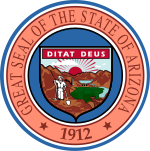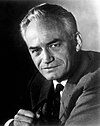
The 1986 United States Senate elections were elections for the United States Senate. Held on November 4, in the middle of Ronald Reagan's second presidential term, the 34 seats of Class 3 were contested in regular elections. The Republicans had to defend an unusually large number of freshman Senate incumbents who had been elected on President Ronald Reagan's coattails in 1980. Democrats won a net of eight seats, defeating seven freshman incumbents, picking up two Republican-held open seats, and regaining control of the Senate for the first time since January 1981. This remains the most recent midterm election cycle in which the sitting president's party suffered net losses while still flipping a Senate seat.

The 1980 United States Senate elections were held on November 4, coinciding with Ronald Reagan's victory in the presidential election. The 34 Senate seats of Class 3 were contested in regular elections. Reagan's large margin of victory over incumbent Jimmy Carter gave a huge boost to Republican Senate candidates, allowing them to flip 12 Democratic seats and win control of the chamber for the first time since the end of the 83rd Congress in January 1955.

The 1974 United States Senate elections were held on November 5, with the 34 seats of Class 3 contested in regular elections. They occurred in the wake of the Watergate scandal, Richard M. Nixon's resignation from the presidency, and Gerald Ford's subsequent pardon of Nixon. Economic issues, specifically inflation and stagnation, were also a factor that contributed to Republican losses. As an immediate result of the November 1974 elections, Democrats made a net gain of three seats from the Republicans, as they defeated Republican incumbents in Colorado and Kentucky and picked up open seats in Florida and Vermont, while Republicans won the open seat in Nevada. Following the elections, at the beginning of the 94th U.S. Congress, the Democratic caucus controlled 60 seats, and the Republican caucus controlled 38 seats.

The 1968 United States Senate elections were elections for the United States Senate. Held on November 5, the 34 seats of Class 3 were contested in regular elections. They coincided with the presidential election of the same year. The Republicans picked up five net seats in the Senate. This saw Republicans win a Senate seat in Florida for the first time since Reconstruction.

The 1964 United States Senate elections were held on November 3. The 33 seats of Class 1 were contested in regular elections. Special elections were also held to fill vacancies. They coincided with the election of President Lyndon B. Johnson by an overwhelming majority, to a full term. His Democratic Party picked up a net two seats from the Republicans. As of 2023, this was the last time either party has had a two-thirds majority in the Senate, which allowed the Senate Democrats to override a veto, propose constitutional amendments, or convict and expel certain officials without any votes from Senate Republicans. However, internal divisions would have prevented the Democrats from having done so. The Senate election cycle coincided with Democratic gains in the House in the same year.
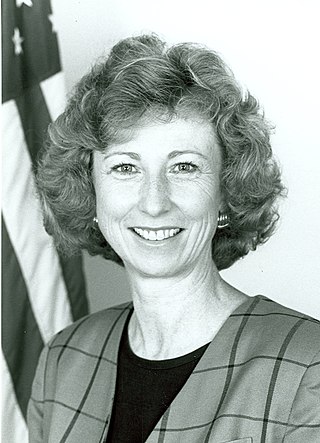
Karan English is an American politician who served in the U.S. House of Representatives of the 103rd United States Congress from 1993 to 1995.

The 2008 United States Senate election in Kansas was held on November 4, 2008. Incumbent Republican U.S. Senator Pat Roberts won re-election to a third term.

Electoral history of Barry Goldwater, United States Senator from Arizona and Republican Party nominee for President of the United States during 1964 election
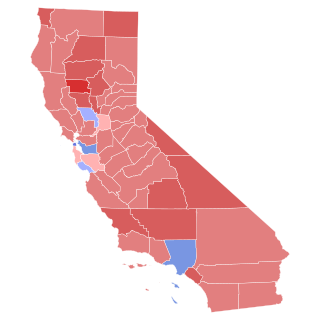
The 1982 United States Senate election in California took place on November 2, 1982. Incumbent Republican U.S. Senator S. I. Hayakawa decided to retire after one term. Republican Pete Wilson, the Mayor of San Diego, won Hayakawa's open seat over Democratic Governor Jerry Brown and several minor candidates.

The 1952 United States Senate election in Arizona was held on November 4, 1952. Incumbent Democratic U.S. Senator and Senate Majority Leader Ernest McFarland ran for re-election to a third term, but was defeated by the Republican nominee and future candidate for President of the United States, Barry Goldwater.

The 1928 United States Senate elections in Arizona took place on November 6, 1928. Incumbent Democratic U.S. Senator Henry F. Ashurst ran for reelection to a fourth term, defeating Republican nominee former U.S. Senator Ralph H. Cameron in the general election. Cameron was defeated in the previous election year, in 1926, by then-U.S. Congressman Carl T. Hayden, leading Cameron to decide to challenge Ashurst in order to return to the United States Senate.
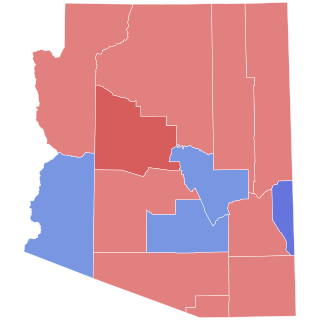
The 1958 United States Senate election in Arizona took place on November 4, 1958. Incumbent Republican U.S. Senator Barry Goldwater ran for reelection to a second term, and defeated former U.S. Senator, and then-Governor, Ernest McFarland in the general election. The election was a rematch from 1952, where Goldwater defeated McFarland by a narrow margin. Goldwater had attributed the 1952 win to the unpopularity of President Harry S. Truman and popular Wisconsin Senator Joseph McCarthy endorsing his campaign.

The 1964 United States Senate election in Arizona took place on November 3, 1964. Incumbent Republican U.S. Senator Barry Goldwater decided not to run for reelection to a third term, instead running for President of the United States as the Republican Party nominee against Lyndon B. Johnson. Arizona Governor Paul Fannin ran unopposed in the Republican primary, and defeated Democratic nominee Roy Elson, who was a staff member for U.S. Senator Carl Hayden until Hayden's retirement in 1969, after which Goldwater held that seat from 1969 to 1987.
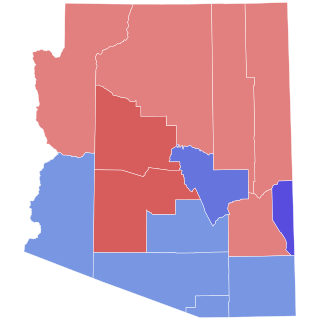
The 1970 United States Senate election in Arizona took place on November 3, 1970. Incumbent Republican U.S. Senator Paul Fannin decided to run for reelection to a second term, running unopposed in the Republican primary. Fannin defeated Democratic nominee Sam Grossman in the general election. This was the last time until 1994 that Republicans won Arizona's Class 1 Senate Seat.
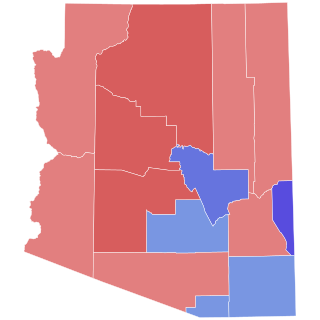
The 1968 United States Senate election in Arizona took place on November 5, 1968. Incumbent Democratic U.S. Senator Carl Hayden, 91, decided not run for reelection to an eighth term, ending his 57-year-long career in Congress. Hayden's longtime staff member Roy Elson ran as the Democratic Party nominee to replace him. Elson was defeated by a wide margin, however, by former U.S. Senator and 1964 Republican presidential nominee Barry Goldwater, who staged a political comeback. Prior to Goldwater's election, the seat had been held for decades by the Democratic Party under Carl Hayden, but after this election remained in Republican Party control continuously for 52 years, until Democrat Mark Kelly won in the 2020 special election.

The 1962 United States Senate election in Arizona took place on November 6, 1962. Incumbent Democratic U.S. Senator Carl Hayden ran for reelection to a seventh term, defeating Republican State Senator Evan Mecham in the general election. Mecham became Governor of Arizona more than two decades later, and was subsequently impeached and removed from office.

The 1980 United States Senate election in Arizona took place on November 4, 1980. Incumbent Republican Senator Barry Goldwater decided to run for reelection to a third consecutive term, after returning to the Senate in 1968 following his failed presidential run in 1964 against Lyndon B. Johnson. Despite Republican presidential nominee Ronald Reagan's landslide win in Arizona, Goldwater defeated Democratic Party nominee Bill Schulz in the general election by a narrow margin, which later caused Goldwater to decide against running for reelection to a fourth consecutive term. Goldwater won only three counties, including Maricopa County.

The 1964 United States Senate election in California was held on November 3, 1964.

The 1964 United States Senate election in Mississippi was held on November 3, 1964. Incumbent Democratic U.S. Senator John C. Stennis won re-election to his fourth term.

The 1970 United States Senate election in California was held on November 3, 1970.

